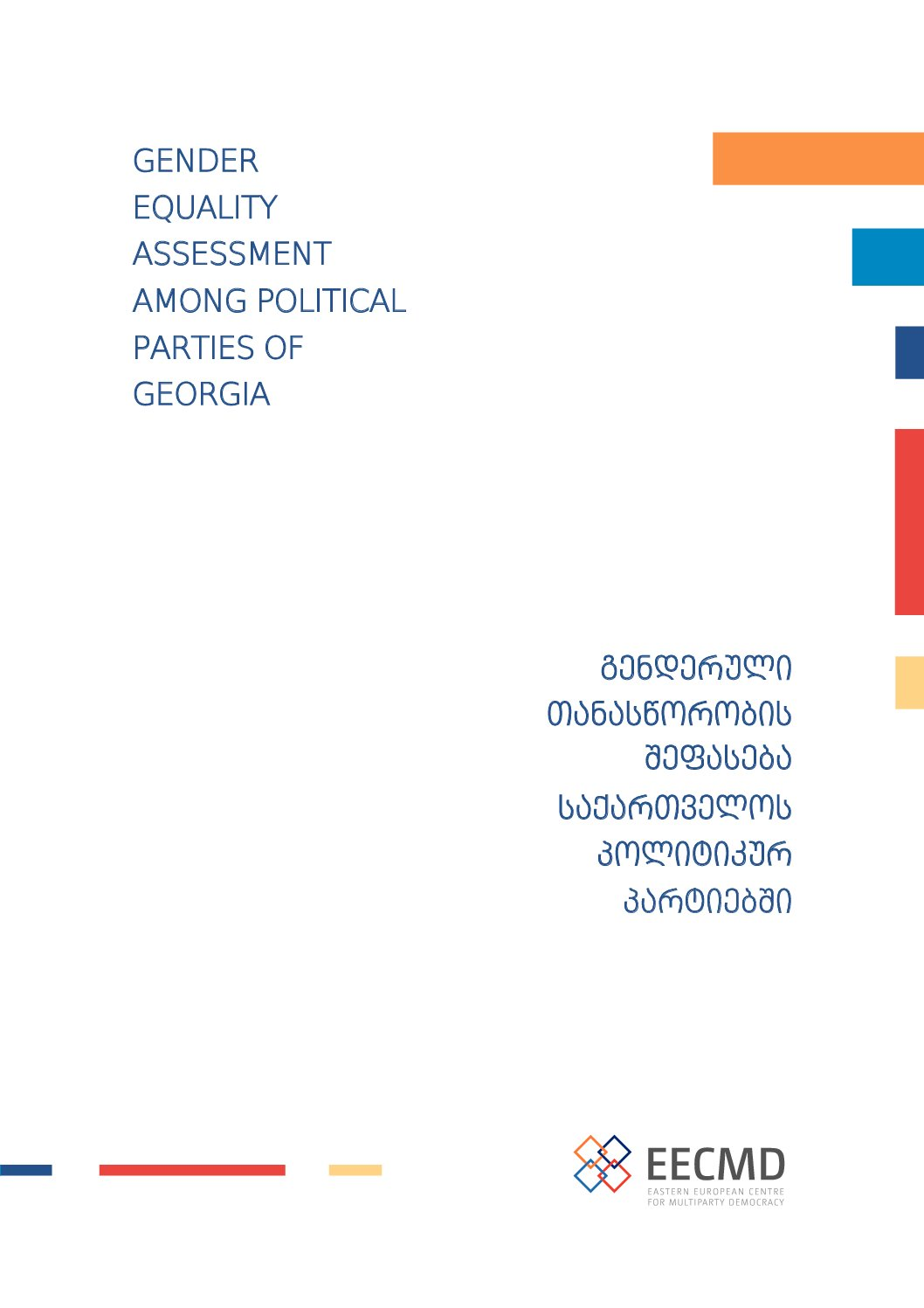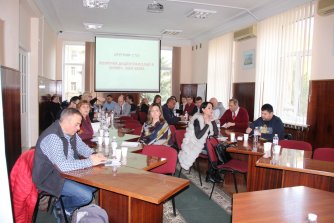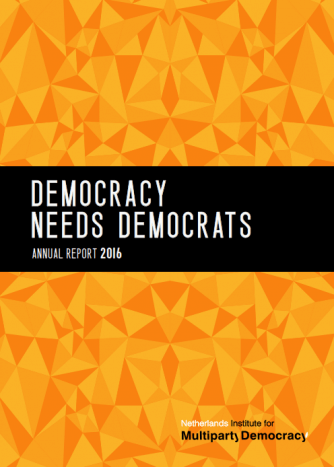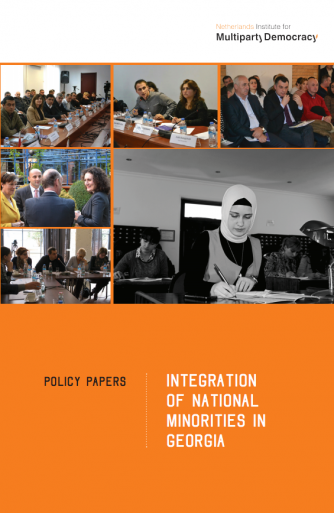
Gender Equality Assessment Among the Political Parties of Georgia
The Gender Equality Ranking of Political Parties of Georgia produces its assessment in three dimensions – Electoral, Institutional and Programmatic. Each of these dimensions consists of a set of indicators to which pre-determined weights are assigned and the resulting aggregate can be used to create a common index of gender equality in the political parties. The first ranking of gender equality among the political parties of Georgia was produced in 2014. This is the third ranking and it covers the year of 2017.






